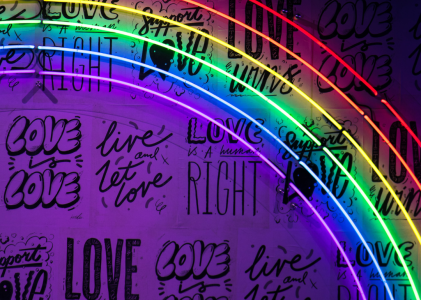In Ghana, a fight for civil rights for LGBTQ people is playing out largely online through social media and coalescing around the hashtag #KillTheBill. After the raid of a queer community space in Accra and the arrest of 21 people in Ho, Volta Region in 2021, it became increasingly clear that being queer, or even just supporting queer people, in public is a high risk activity.
To be clear, anti-sodomy and anti-gay laws are a holdover from the British colonial government. While Ghana gained its independence in 1957, and a new constitution was drafted (and has since been replaced a number of times), many of the laws, government structures and economic structures were carried over into the newly independent nation. There is a documented history of genders outside of the binary as well as same-sex relations among the cultures and tribes that are in present-day Ghana, and it has been through the spread of Christianity through colonization that societal norms and attitudes towards queer people have evolved into the repressive and violent ones seen today.
Same-sex relations have been criminalized in Ghana since 1960, though in more recent years, there had been an increase in quiet tolerance. While the majority of Ghanaians maintained negative perceptions and attitudes towards queer people, there was not an active enforcement of the law. A number of small, grassroots organizations and community groups sprang up around promoting LGBTQ rights, such as the Drama Queens. It was perhaps this calmness that led Ghanaian journalist Ignatius Annor to come out publicly as gay on a television news segment in Feburary 2021.
However, the public and loud proclamation claiming the gay identity proved to be too much for the quiet tolerance in Ghana. During the segment, he talked about LGBT+ Rights Ghana, a local organization that offered a community space. In the days after the story aired, the community center was raided and shut down. In spite of, or perhaps because of, the increased state repression of queer people, a group held a training in Ho, Volta Region on how to document human rights violations against LGBTQ individuals. This training was also raided, resulting in the arrest of 21 people, leading to a significant outcry on social media. Ultimately the case was dismissed, but the message was clear that organizing in person to advance queer rights in Ghana was riskier than ever.
With this risk, much of the organizing moved to social media. When a new bill was introduced to Parliament that would criminalize advocacy for LGBTQ individuals, going beyond the laws already on the books that criminalized relations, the hashtag #KillTheBill became the rallying cry. And while organizing around a hashtag allowed activists to remain anonymous, one transgender musician, Angel Maxine, decided to make a more public declaration. She released her song “Wo Fie,” meaning “Your Home,” which ended up going viral on TikTok.
The lyrics make it clear that queerness is not a so-called Western import and that everyone knows someone who is queer. As the risk of organizing in person is quite high, the use of social media to advocate for changes as well as connect with individuals beyond Ghana’s borders for support have shown to be promising, as the vote on the 2021 bill has continued to be delayed.
Photo in featured image by William Gibson on Unsplash

